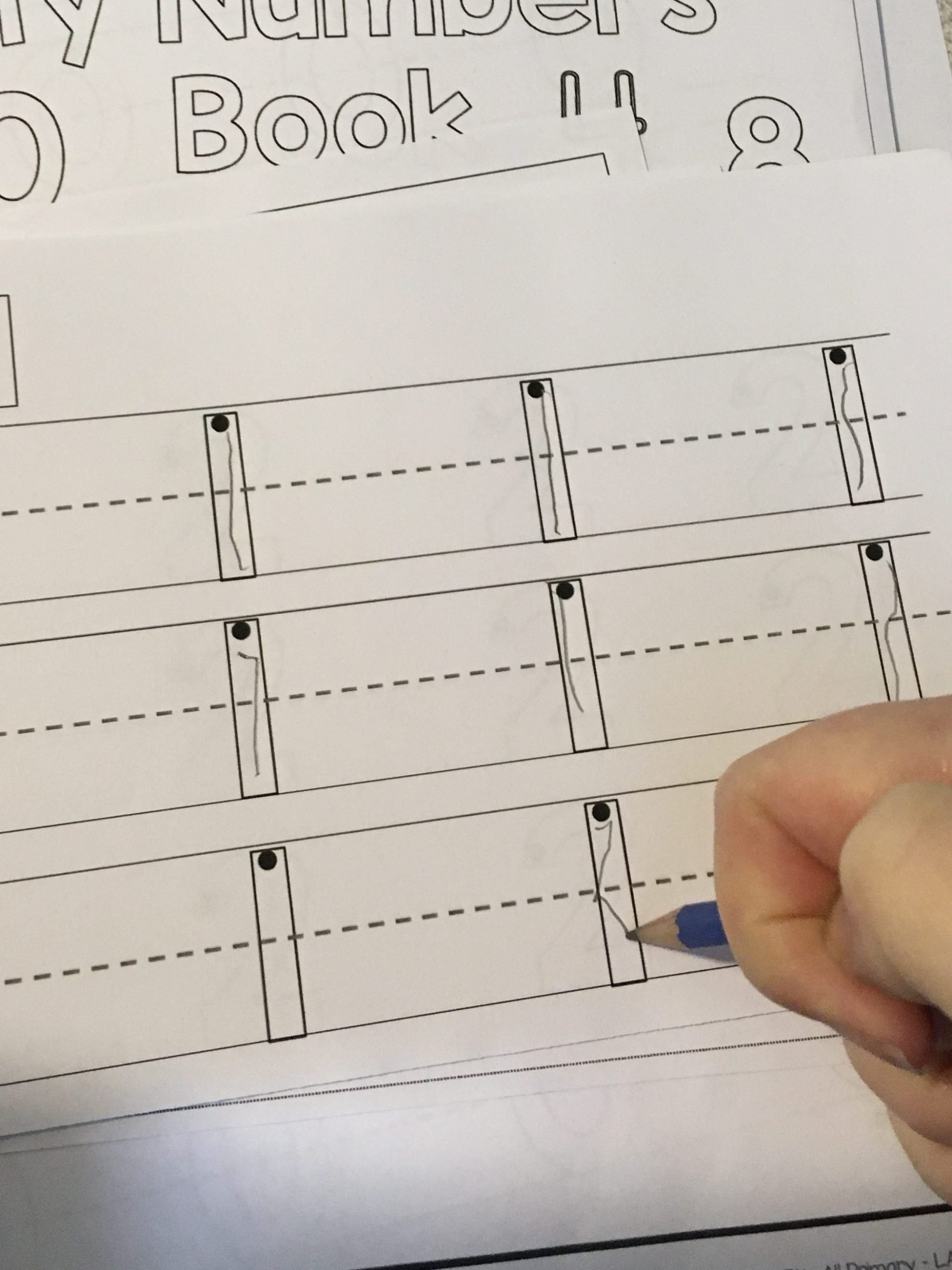If you are new to teaching, you will probably utilize a lot of math worksheets when teaching. Many teachers utilize worksheets for “busy work” or “survival tactics”. However, does the same apply to kindergarten? In some kindergarten classrooms, the focus is on play and hands-on activities. Is there room for academic work and printing in worksheets? Absolutely!
Objectives for Kindergarten
Depending on your school district, the learning objectives for kindergarten will vary. Where I live, kindergarten students are to build strong numeracy skills. They are to demonstrate mathematical understanding and communicate mathematical thinking. Kindergarten children are learning concepts of 5 and 10, and math terminology (shapes, measurements, etc). Kindergarten students are to see that math is all around them!
The Role of Play and Work
The role of play for kindergarten students is to build their social skills, independent skills, foster curiosity and wonder with their world. While most of these activities are hands-on, we need to get children to understand that writing out their work is one big way in communicating their thinking. As teachers we want to know how students are learning. When in the classroom, I use iPads & tablets to video students as they work, asking them to show me what they know, or what they are working on. Eventually they learn to video themselves.
Why We Write
When students write out their work, it is more than just tracing, copying, or filling-in-the-blank. Researchers suggest that when students write out their work, it is also developing areas of their brain when literacy, communication, which eventually leads to them creating their own information. It begins with drawings and squiggles. Then we children enter the classroom, they learn to mimic and copy their teacher, who is writing on the classroom whiteboard.

One of my favourite theorists to study, while in University, was Vygotsky. Now Vy talks a lot of social contexts and the role of culture in the cognitive development of children, but I see many connections to the community a teacher is creating and facilitating in the classroom. Whether your views on the objectives of education are to create critical thinkers, individuals ready to society, etc., your short time in the classroom with their young ones is your opportunity to help support them at their current stage of life.
Math Worksheets Can Support Thinking/Learning
I apologize for that brief digression. We are often required to give a report or an accounting of how our students are doing, and we need evidence! If you are using the right worksheets, you will be able to gather a tonne of information about your student. But try not to use them in isolation. If you are using centres or rotations in your class, take regular moments to ask students about what they wrote. Video it or take notes. The writing doesn’t always give you the full picture.

What the Math Worksheets Don’t Tell You
What the worksheets don’t tell you:
- how long did it take to complete?
- did they receive support?
- how was their pencil grip?
- how were they sitting as they worked?
- what was the noise level in the classroom?
- was there interruptions?
- did students mimic you, as you demonstrated?
- was there a formal lesson prior to this activity?
- what took place before this activity?
- was the child hungry?
It’s enough to make you scream! But seriously, worksheets have an important place in the classroom. They don’t need to be used for everything. When you do choose to use them, ask yourself, why are you using them? Students (or teachers) do not need busy work. Try to brainstorm different ways to showcase learning. By the way, some of your students will absolutely love the worksheets so give ones that have variety in them so they keep enjoying them.
If you are interested in other strategies I utilize in the classroom, you can find more blog posts and Youtube videos on this website. Please share your thoughts on worksheets in the classroom, I would love to hear them!
Happy Teaching!

Leave a Reply
You must be logged in to post a comment.